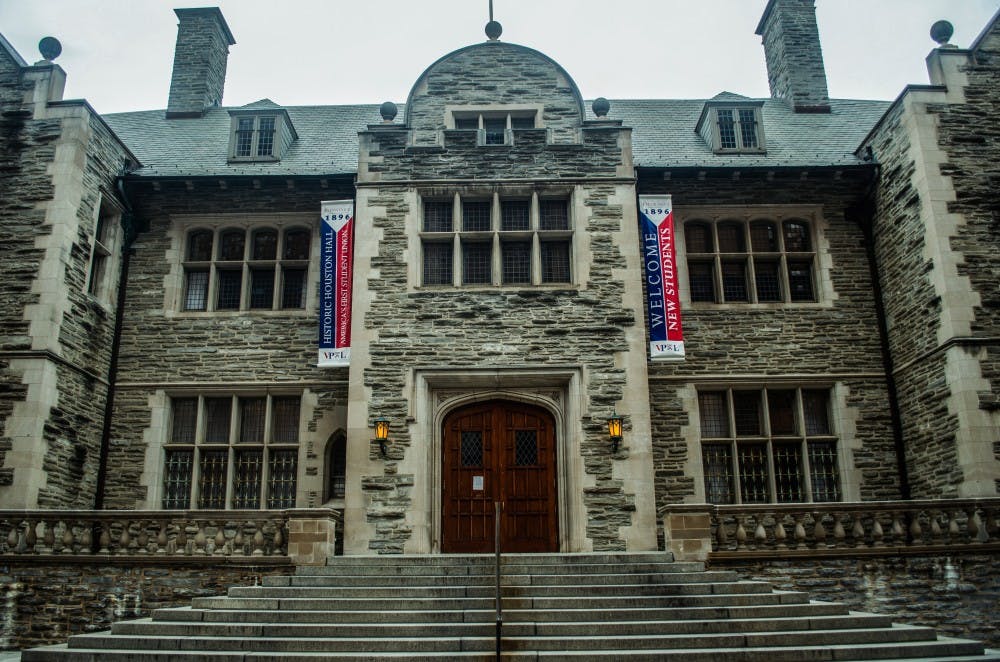
My parents met at Penn in 1987, during Quaker Days. Both were underprepared Cuban kids from single-parent households. My dad was a low-income student, the first in his family to apply to college.
Growing up, I didn’t hear about how much my parents loved Penn. In fact, I didn’t hear much about Penn, particularly its status as an elite institution, at all. My parents instead conveyed the difficulties they faced as first-generation students navigating inaccessible college resources, unfamiliar job and internship processes, as well as obstacles missing from the lives of their peers. My dad jokes about the time someone invited him to go on a ski trip — a pipe dream for someone working 20 hours a week to afford a plane ticket back home.
As I began to understand concepts like privilege and generational wealth, I seriously questioned whether I should apply to Penn. How was I going to reconcile applying to my parents’ alma mater with my growing knowledge of how wealth disparities are perpetuated in a society with increasingly limited social mobility? Still, my parents wanted me to make informed choices and took me on college tours, including to Penn. I loved the campus and the city of Philadelphia. Now at Penn as a legacy, I try to fulfill my responsibility to contribute to a more equitable admissions system by volunteering to help local high school students with college applications through the Netter Center. With all the resources Penn provides for community engagement, I challenge other legacy students to do something similar.
I haven’t been singled-out, judged, or personally criticized as a legacy student. Barring those whose parents bought a new building, few of us here have gotten into Penn “the easy way.” I’m proud of the hard work I did to get into Penn, and am compelled to continue to work hard in my classes, in Penn’s feminist spaces, and in the community. I focus on making the most of the resources this elite institution provides and on proving that I am a good candidate to fulfill the main purpose of higher education as dictated by Benjamin Franklin in founding Penn: service to society.
Being a legacy student means we have an edge in the admissions process to get to Penn’s resources and opportunities. As a legacy student, what are you doing to pay it forward? To support your first-generation low-income peers? To make higher education accessible to low-income high school students? We don’t have the right to exist, benefiting from an unjust system, without thinking about our privilege.
Penn is part of the higher education system gatekeeping diminishing opportunities and wealth in the world; legacy and non-legacy students participate in a microcosm of that — competing for clubs, internships, job offers. We need to acknowledge this reality and not fall for classist arguments that imply that people with resources are doing the rest of the world favors. People with privilege have to acknowledge the zero-sum, competitive nature of these systems, decide their level of participation and, more importantly, contribute to build a better system and uplift others in the process.
I’m thankful for the perspective my parents have given me as FGLI students at an elite institution; it reminds me that my experiences, as a person whose parents went to Penn, can be very different from my peers'. But in terms of “embracing Penn heritage,” what your parent(s) did at Penn means nothing — heritage is built through contributions we make to Penn while we are here; legacy is the improved community we leave behind.
Addressing legacy students’ privilege isn’t labeling them “lesser.” If you’re taking this address as an insult, you need to reflect on why that is. I don’t mind jokes at the expense of legacy students — I’ve joked that I would help a friend in a hard class by adding to the “legacy curve” with my low grade. Many students deal with imposter syndrome at Penn, and it’s important to address. But dealing with it in a self-victimizing manner that paints your privileges in a long-suffering light is problematic, and doesn’t actually help with those negative feelings.
Legacy students, don’t hide your legacy status. Instead, acknowledge the privilege you hold in a faux-meritocratic system, speak out against it, and support others who share their struggles with the system. We need to keep having conversations around legacy admissions and how legacy students come to campus with generational knowledge and distinct advantages.
In terms of school spirit and community, my parents don’t fit the bill of football game-going, LOVE statue-Instagramming, money-donating alumni who groom their kids for Penn. I don’t think I will either. While everyone has different college experiences, Penn pride should primarily drive its alumni to use the opportunities and resources they gain while here to make a difference in their communities.
Legacy students, focus on making the most of your Penn education and dedicate your human capital to improving the world — none of us should prioritize creating Red and Blue dynasties.
SABRINA OCHOA is a College junior from Boynton Beach, Fla. studying Philosophy, Politics, and Economics.
The Daily Pennsylvanian is an independent, student-run newspaper. Please consider making a donation to support the coverage that shapes the University. Your generosity ensures a future of strong journalism at Penn.
Donate




